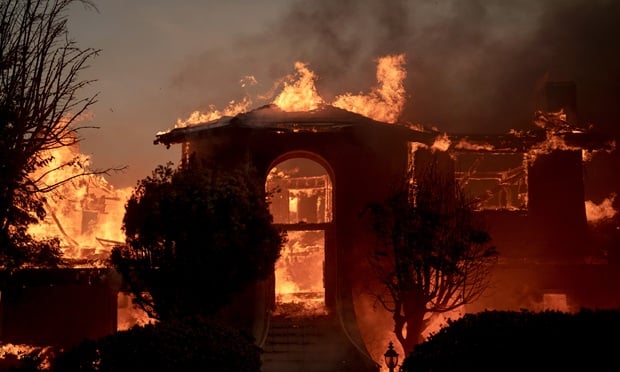NU Online News Service, July 29, 4:09 p.m. EDT
Legislation introduced in the Senate today that would split the difference on "wind vs. water" claims after a hurricane appears to be generating little support within the property and casualty insurance industry.
Moreover, Rep. Gene Taylor, D-Miss., also doesn't appear to be accepting the legislation as an alternative to his House bill that would add windstorm coverage to the National Flood Insurance Program.
The Senate legislation was introduced by Sen. Roger Wicker, R-Miss.
Under the Wicker bill, should a "wind vs. water" claim arise with no agreement on how to divide the claim, then the policyholder would immediately receive 50 percent of the claim payout from the NFIP and 50 percent from the wind insurer–either a private insurer or state wind pool. The claim would then go to an arbitration panel to settle the differences between the NFIP and the wind insurer.
Sen. Wicker said in a statement, "Following the devastation of Katrina, many Mississippians had to prove in court how much damage was caused by wind and how much was caused by water. Homeowners with the appropriate insurance policies should not have to fight in court for the coverage they purchased. Under my bill, if there is a dispute between the insurers responsible for paying the claim, the property owner would be compensated and the dispute would be resolved in arbitration."
The warmest industry support came from the National Association of Professional Insurance Agents.
Mike Becker, PIA director of federal affairs, said the legislation "has some interesting possibilities."
He said PIA shared two areas of concern in meetings with Sen. Wicker's staff.
First, he said, there would need to be sufficient buy-in on the part of carriers.
"Second, if disputed claims are to be sent to arbitration panels, these panels should be set up by state departments of insurance, rather than by the federal government," Mr. Becker said.
Jimi Grande, senior vice president of federal and political affairs for the National Association of Mutual Insurance Companies, rejected the proposal, saying it "serves only as a distraction from the fundamental problems facing the NFIP.
"Instead of bringing actuarially sound rates or reducing subsidies, this bill would only shift the expense of storm losses and, ultimately, raise the cost of insurance for consumers in the gulf and elsewhere," Mr. Grande said.
Blain Rethmeier, a spokesman for the American Insurance Association, expressed concern about the way the bill is constructed.
"As currently drafted, the dispute mechanism is triggered by a loss event, and not by an actual dispute," he said. "This presumes that the claims adjuster does not know how to determine whether or the extent to which a loss was caused by 'wind vs. water,'" Mr. Rethmeier explained.
In fact, he added, claims adjusters make these determinations all the time and in the vast majority of cases, it's easy to determine which peril caused the loss.
Brian Martin, policy director for Rep. Taylor, contradicted reports that Rep. Taylor believes the Wicker bill is a good compromise between his bill and the five-year NFIP extension recently passed by the House that does not add windstorm coverage to the program.
"Wicker's bill is not a substitute for Rep. Taylor's legislation, H.R. 1264, the Multiple Peril Insurance Act," Mr. Martin said.
He said the Wicker bill is just an administrative procedure for resolving "wind vs. water" conflicts between the NFIP and insurance companies.
He noted that Rep. Taylor's amendment to the five-year extension bill is "slightly similar" to the Wicker bill in that when there is a "wind vs. water" dispute, the homeowner would be paid and then the wind and flood policies would figure out how to allocate the loss.
Mr. Martin said that in Rep. Taylor's amendment, The NFIP pays the homeowner and gets reimbursed later by the insurer for the wind share.
He explained, "I thought we would have some state and NAIC issues if we tried to make the private insurer pay the homeowner, so that is why we propose in our amendment that the NFIP pay the homeowner and then make the insurer reimburse NFIP after the allocation was decided."
Currently, Mr. Martin and Rep. Taylor are continuing to seek floor action on the bill to add windstorm coverage to the NFIP.
Mr. Taylor had hoped to have the bill on the House floor before the House departs Friday for a month-long recess.
Want to continue reading?
Become a Free PropertyCasualty360 Digital Reader
Your access to unlimited PropertyCasualty360 content isn’t changing.
Once you are an ALM digital member, you’ll receive:
- Breaking insurance news and analysis, on-site and via our newsletters and custom alerts
- Weekly Insurance Speak podcast featuring exclusive interviews with industry leaders
- Educational webcasts, white papers, and ebooks from industry thought leaders
- Critical converage of the employee benefits and financial advisory markets on our other ALM sites, BenefitsPRO and ThinkAdvisor
Already have an account? Sign In Now
© 2024 ALM Global, LLC, All Rights Reserved. Request academic re-use from www.copyright.com. All other uses, submit a request to [email protected]. For more information visit Asset & Logo Licensing.








